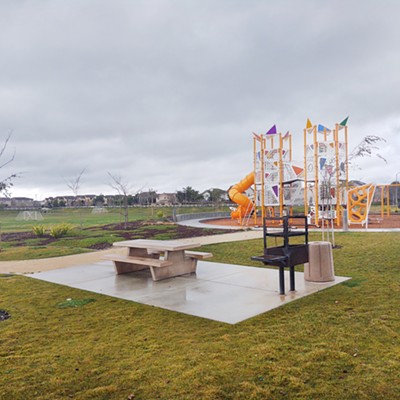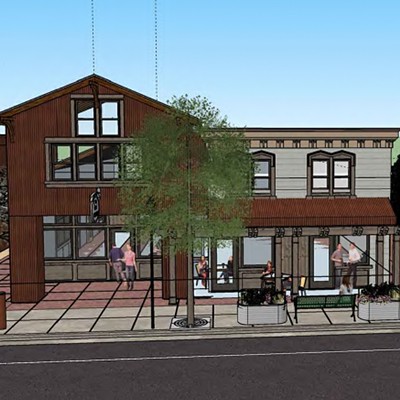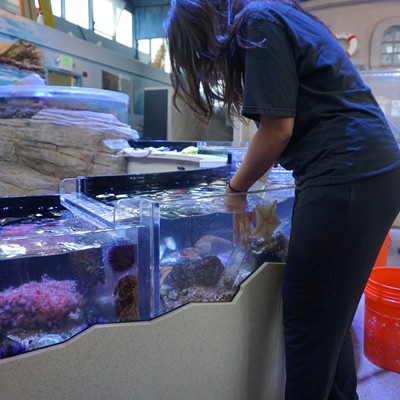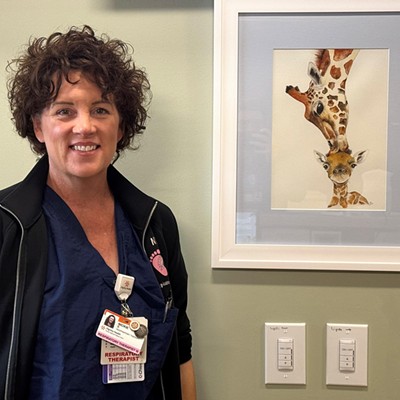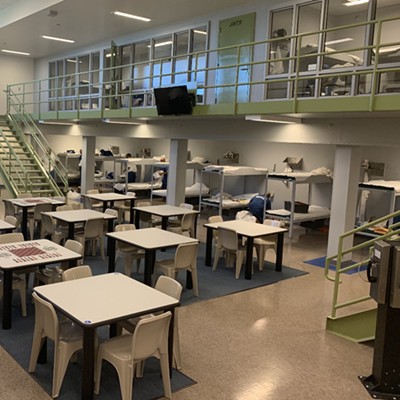Nobody wants to argue with their neighbors, but former Lt. Gov. Abel Maldonado said there isn’t anything he can do to make Bien Nacido Vineyards happy when it comes to his 48-acre cannabis cultivation project.
“I’m just negotiating with myself,” Maldonado said during a Dec. 14 Santa Barbara County Board of Supervisors meeting.
He told supervisors that after the Millers—who live, grow grapes, and make wine next to his property at the confluence of the Santa Maria and Cuyama rivers—lost their appeal of the Planning Department’s approval of the CannaRios project, he continued to make changes to the initial proposal even though he didn’t have to. The county Planning Commission unanimously voted to deny the appeal on May 5, but Maldonado said he took comments from Commissioner John Parke to heart in an attempt to be a good neighbor.

The CannaRios project—which includes a little more than 46 acres of outdoor cannabis cultivation, 1.45 acres for an indoor cannabis nursery, two harvests per year, and no on-site processing—moved the site to provide a larger setback from Bien Nacido’s new tasting room.
The project also nixed a proposed flash freezer, moved the water well it would be using, and added more hoop houses, which would cut down on potential pesticide-drift conflicts with surrounding legacy agriculture operations.
“It’s the last minute, and there’s more stuff coming,” Maldonado during the Dec. 14 hearing on the appeal of the Planning Commission’s decision. “They just started throwing everything at it.”
The Millers’ initial appeal included assertions that the project was incompatible with the county’s comprehensive plan and land use development code; failed to comply with the California Environmental Quality Act (CEQA), specifically taking issue with the county’s programmatic environmental impact report that applies to cannabis cultivation projects; unlawfully modified the Cuyama River with an improperly permitted berm; and didn’t receive approval from the appellant to use a shared water source.
In the appeal of the Planning Commission decision, the Millers included supplemental issues, alleging new information about air quality impacts and inadequate consideration of hydrofluorocarbon emissions.
Courtney Taylor, who represented the Millers and Bien Nacido, said that any changes CannaRios might have made to the project weren’t changes they requested, calling Maldonado’s statements about project changes and allegations that the Millers were abusing CEQA a “gross mischaracterization.”
“These are very serious issues to the Miller family,” Taylor said. “They take air quality very seriously. This is a real issue to them, and they take properly permitted river crossings very seriously.”
Taylor said the changes CannaRios did make were submitted late in the game, giving her and her clients just a short time to review them before the appeal hearing. For instance, she said, the project’s well wasn’t moved until the Friday before the Dec. 14 meeting, adding that “we are skeptical” about “the real reason” the well was moved.
Fifth District County Supervisor Steve Lavagnino, whose district includes the project site and the Millers’ adjacent property, said he’s disappointed when projects get appealed.
“Bien Nacido wines are awesome,” he said, adding that both the Millers and the Maldonados are important in the Santa Maria Valley. “Both families have history, and it would be nice if everything could work out. But at the end of the day, business is business.”
The project is properly zoned in an agricultural area, complies with the county comprehensive plan and land use code, and has no notices of violation on the property, he said. It has a noise plan, odor abatement plan, habitat plan, transportation plan, water efficiency plan, and more. The staff report and appeal comprise more than 400 pages of work.
“This has been exhaustingly evaluated,” he said. “For me this project has been vetted.”
It was a clash of the titans, 3rd District Supervisor Joan Hartmann said, but she couldn’t find a reason not to support staff’s recommendation to uphold the project’s approval.
Bob Nelson, 4th District supervisor, said he had to take the names off the documents he was reading and approach the project like he would any other.
“There’s going to be constant conflict moving forward between legacy agriculture and cannabis,” Nelson said. “For me to uphold this appeal and deny the project, I need to find that staff erred somewhere. … I’ve tried to find the fly in the ointment here, and I just can’t.”
Supervisors voted 4-1 to deny the Millers’ appeal of the project, with 1st District Supervisor Das Williams dissenting. He took issue with CannaRios’ refusal to include a cap on the number of plants per acre in project documents even though CannaRios project lead Brandon Gesicki said they would limit it to 1,500 or less during his presentation.
“I’ve never had an applicant put forward testimony and not be willing to have that in the conditions of approval, so this is a first for me,” he said.





